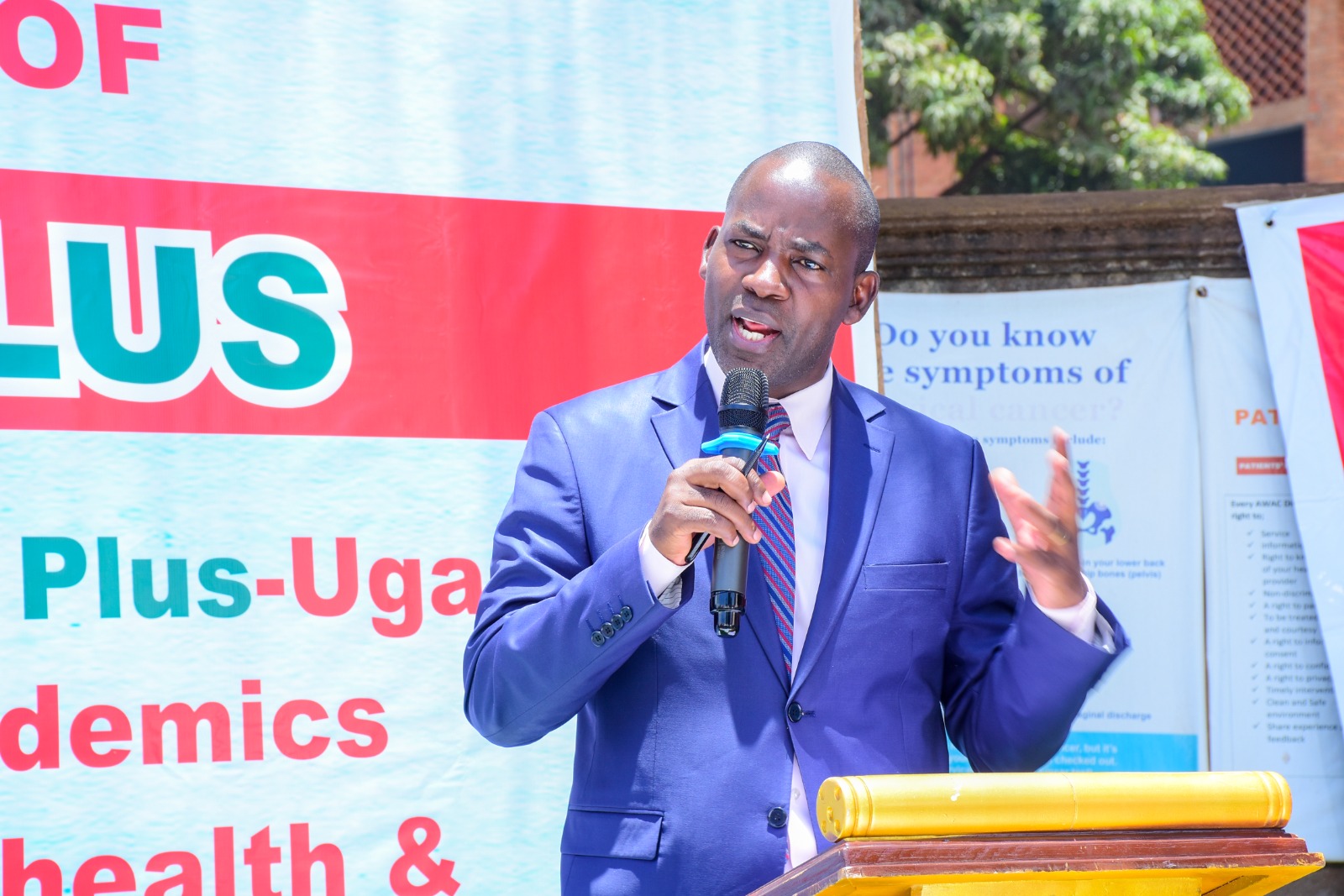The Head of HIV Prevention at the Uganda AIDS Commission, Dr Daniel Byamukama has emphasized the importance of a collaborative approach in the country’s multi-sectoral HIV response this call was made during a press conference media center in Kampala.
Uganda recognizes that tackling HIV and AIDS is a collective effort, involving not only the government but also civil society and the private sector as vital partners. Dr. Byamukama stressed that various sectors, including health, education, media, culture, faith, hospitality, and defense, play crucial roles in the HIV response. Each sector has its responsibilities in line with their mandates, which are integral to a successful national HIV and AIDS response.
Neglecting these responsibilities could jeopardize Uganda’s goal of ending the AIDS epidemic as a public health threat by 2030. To ensure a coordinated effort, the Uganda AIDS Commission oversees and coordinates HIV prevention and control activities across sectors and stakeholder groups. This coordination is essential for synergy, efficiency, and achieving the common goal.
The Uganda AIDS Commission’s responsibilities include leading strategic planning, monitoring, and evaluation for HIV/AIDS, advocacy, information dissemination, knowledge leverage, and support for HIV/AIDS-related research. To further these efforts, they have organized the National HIV and AIDS Symposium 2023, scheduled for November 14-16, at Kololo Independence Grounds. The symposium, open to the public, will address the theme, “My Responsibility Towards Ending AIDS by 2030,” emphasizing the role of individuals in the fight against HIV.
The symposium includes events such as the National HIV and AIDS Scientific Meeting and the Annual Joint AIDS Review, along with programming and science exhibitions. This year’s symposium will also feature the Philly Lutaaya Memorial Lecture and a financing dialogue to discuss financing mechanisms for the current National HIV and AIDS Strategic Plan.
Dr. Byamukama reviewed Uganda’s progress in HIV response over the past decade, highlighting significant reductions in new HIV infections and related morbidity and mortality. In 2022, Uganda recorded 52,000 new HIV infections and 17,000 AIDS-related deaths, indicating substantial progress compared to previous years.
However, challenges remain, with Uganda heavily reliant on external donors for HIV epidemic response funding. Domestic funding needs to increase to enhance the sustainability of these efforts. There are also disparities in HIV treatment, with certain populations lagging behind. Investment in antiretroviral therapy is essential to address these inequalities.
Risky sexual behavior continues to drive Uganda’s HIV epidemic, with limited investment in social and behavioral change communication (SBCC) programs. Comprehensive awareness about HIV among young people is not yet at an ideal level, emphasizing the need for greater investment in SBCC.
Uganda has made significant strides in its HIV response, but there is still work to be done to ensure that all sectors work together effectively, funding sources are diversified, and inequalities are addressed, ultimately leading to the goal of ending AIDS by 2030.




